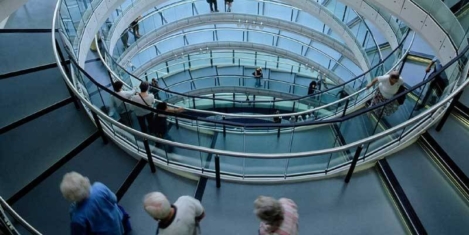July 31, 2017
Being on a temporary or zero-hours contract is bad for your wellbeing, especially if you’re young
 Two major new studies claim to show the impact of temporary or insecure work on the wellbeing of people, especially younger workers. Research into the lives of 7,700 people from the UCL Institute of Education (IOE) suggests that young adults who are employed on zero-hours contracts are less likely to be in good health, and are at higher risk of poor mental health than workers with stable jobs. Meanwhile, an analysis from the Institute for Public Policy Research (IPPR) and Business in the Community suggests that younger workers (born since 1982) in part-time and temporary work – or who are underemployed and/or overqualified – are more likely to experience poorer mental health and wellbeing, compared to younger workers in more permanent and secure work.
Two major new studies claim to show the impact of temporary or insecure work on the wellbeing of people, especially younger workers. Research into the lives of 7,700 people from the UCL Institute of Education (IOE) suggests that young adults who are employed on zero-hours contracts are less likely to be in good health, and are at higher risk of poor mental health than workers with stable jobs. Meanwhile, an analysis from the Institute for Public Policy Research (IPPR) and Business in the Community suggests that younger workers (born since 1982) in part-time and temporary work – or who are underemployed and/or overqualified – are more likely to experience poorer mental health and wellbeing, compared to younger workers in more permanent and secure work.










 Britain’s most family friendly and flexible employers have been recognised in this year’s Top Employers for Working Families Awards. Now in their 8th year, the annual Top Employers for Working Families Special Awards from the UK’s work life balance charity cover 11 categories across a range of work life policies and practices. Four new sector-specific awards are being introduced this year for the private, public and third sectors; as well as a category for small employers. Sarah Jackson OBE, chief executive of Working Families, said: “In many ways, flexible working and family friendly working have never been more part of the bloodstream of British business. We had a record-breaking number of entries this year, showcasing a wealth of exciting approaches to creating agility in the workplace. Congratulations to all this year’s Top Employers for Working Families award winners, singled out because they offer leading flexible workplaces that support the grain of their employees’ lives. I look forward to working with them to make work work, for people, families and the economy, so that families thrive and business prospers.”
Britain’s most family friendly and flexible employers have been recognised in this year’s Top Employers for Working Families Awards. Now in their 8th year, the annual Top Employers for Working Families Special Awards from the UK’s work life balance charity cover 11 categories across a range of work life policies and practices. Four new sector-specific awards are being introduced this year for the private, public and third sectors; as well as a category for small employers. Sarah Jackson OBE, chief executive of Working Families, said: “In many ways, flexible working and family friendly working have never been more part of the bloodstream of British business. We had a record-breaking number of entries this year, showcasing a wealth of exciting approaches to creating agility in the workplace. Congratulations to all this year’s Top Employers for Working Families award winners, singled out because they offer leading flexible workplaces that support the grain of their employees’ lives. I look forward to working with them to make work work, for people, families and the economy, so that families thrive and business prospers.”
 Nearly three quarters (70 percent) of employers say it’s healthy for employees to have someone to confide in at work, according to new research, but it claims, 1 in 4 employees would consider leaving the company if their friend left. The totaljobs research which featured responses from over 4,000 employees and 103 employers on the latest trends in workplace relationships and office politics found that two thirds (65 percent) of UK workers are finding ‘work spouses’ in the office – that one person who they are very close. Although over half of employers (56 percent) say strong work friendships increase productivity and 60 percent of work spouses say their relationship means ‘they look forward to going into work’, which can help improve staff retention, 1 in 4 (23 percent) say if their friend left, they would consider leaving themselves. Nearly one in 10 (7 percent) go as far as to say that their work spouse leaving the company would be ‘like a bereavement’.
Nearly three quarters (70 percent) of employers say it’s healthy for employees to have someone to confide in at work, according to new research, but it claims, 1 in 4 employees would consider leaving the company if their friend left. The totaljobs research which featured responses from over 4,000 employees and 103 employers on the latest trends in workplace relationships and office politics found that two thirds (65 percent) of UK workers are finding ‘work spouses’ in the office – that one person who they are very close. Although over half of employers (56 percent) say strong work friendships increase productivity and 60 percent of work spouses say their relationship means ‘they look forward to going into work’, which can help improve staff retention, 1 in 4 (23 percent) say if their friend left, they would consider leaving themselves. Nearly one in 10 (7 percent) go as far as to say that their work spouse leaving the company would be ‘like a bereavement’.





















June 12, 2017
What will the UK General Election mean for the workplace? Some experts respond 0
by Mark Eltringham • Architecture, Comment, Flexible working, Property, Workplace, Workplace design
More →